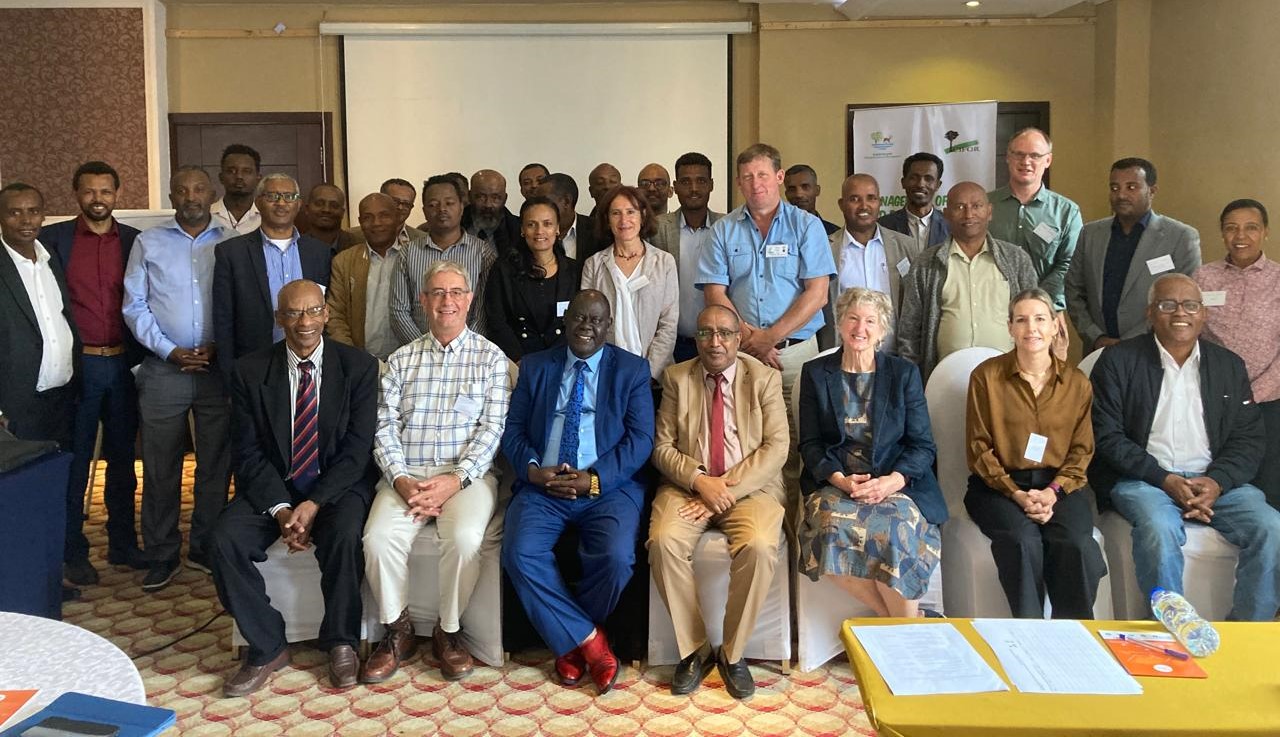Ethiopia is charting a sustainable path to manage pests and diseases threatening its forest crops with a transformative A$2.9 million initiative to bolster livelihoods and forest enterprises. The project focuses on key tree species - Acacia, Eucalyptus and Moringa - over a 5-year period to address critical challenges posed by pests and diseases.
Supported by ACIAR and spearheaded by the University of the Sunshine Coast (UniSC), the project was officially launched late last year during a one-week inception workshop in Addis Ababa, Ethiopia.
The growing threat
Forestry plays a significant role in Ethiopia's economic and social development. Introduced in the 1990s, acacia has been integral to soil and water conservation, degraded lands reclamation, soil acidity amelioration, afforestation, and charcoal production planted in sequential agroforestry. Eucalyptus, a staple since 1895, meets the demand for fuelwood, construction materials, and erosion control. The African moringa (Moringa stenopetala) offers nutritional, medicinal and economic benefits to smallholder farmers.
However, these species face significant threats. Acacia is grappling with severe epidemics of wattle rust (Uromycladium acaciae), which has crippled seedling and plantation production since 2021. Eucalyptus is heavily impacted by pests such as the gall wasp. Moringa suffers from infestations of the moringa moth, significantly compromising yields and household nutrition.
High chemical control costs and limited technical capacities exacerbate these challenges, threatening livelihoods and food security across Ethiopia's Amhara, Oromia, and central to south Ethiopia regions.
'The rapid spread of pests and diseases is unravelling decades of progress, threatening these vital tree species and the lives and futures of smallholder farmers who depend on them,' said Dr Agena Tanga, the project coordinator and a Lead Researcher at the Ethiopian Forestry Development (EFD).

Sustainable solutions
This initiative leverages findings from previous research recommending an integrated pest management (IPM) approach to mitigate these challenges. Dr Nora Devoe, Forestry Program Manager, ACIAR, said the unprecedented pest and disease pressures on the three tree species in Ethiopia highlights the urgent need for scientifically grounded solutions.
'Our research endeavour focuses on understanding and addressing the intricacies involved with pest effects, locating their distribution, and developing appropriate integrated pest management plans,' said Dr Devoe. 'Strengthening local capacities and developing resilience in tree systems can protect these vital species, and not just in Ethiopia. This research will give us increased knowledge about pests and pathogens that are not yet in Australia but can infect these Australian native species. It will also help Australia with tree breeding, and selecting species that are resistant to wattle rust which impacts our native acacias.'
The project employs targeted training approaches for smallholder farmers, community groups, forestry officers, and plant protection experts to improve diagnostics, advisory services and on-farm management practices.
Additionally, the project will utilise a biocontrol-rearing facility, reducing reliance on costly chemical interventions. Addressing forest pests and diseases will support the Ethiopian government's top agricultural priorities and build on the flourishing ACIAR-funded Trees for Food Security project.
The project is led by UniSC and implemented in partnership with EFD, the Centre for International Forestry Research and World Agroforestry (CIFOR-ICRAF), the Institute for Commercial Forestry Research (ICFR), and the University of Pretoria.
'This partnership marks a significant step toward safeguarding our forest enterprises and supporting Ethiopia's agricultural resilience,' said Mr Kebede Yimam, the Director General of EFD, during the workshop.
'We will develop locally adaptable and sustainable solutions by partnering with Ethiopian growers, plant protectionists, and leading experts from these institutions. Our shared goal is to safeguard Ethiopia's forest landscapes, ensuring their ecological health and the livelihoods of the communities that depend on them,' said Dr Madaline Healey, project manager and an entomologist at the UniSC.
Learn more via the ACIAR website.






